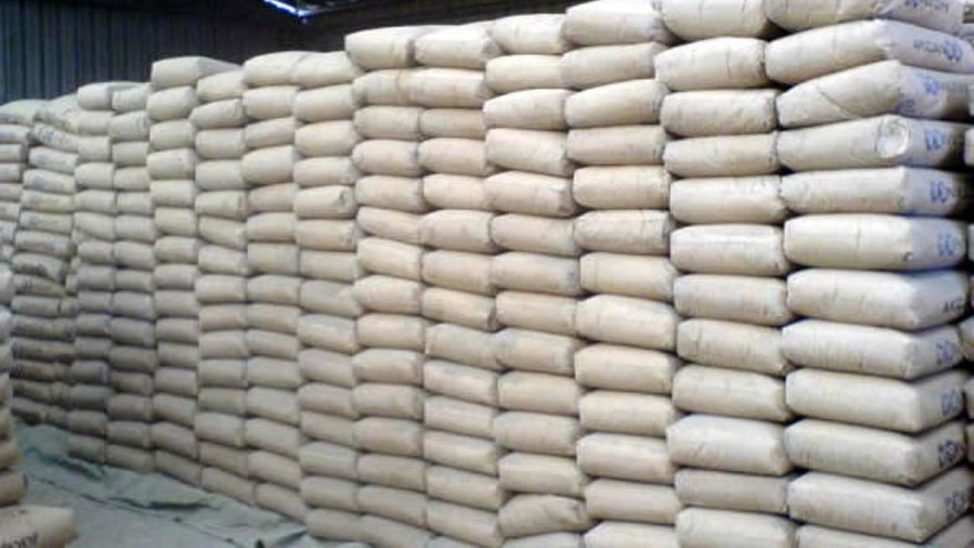Fresh increases in cement prices and associated products were implemented recently by distributors across the country, as high inflation impacted the building materials market.
Dealers and retailers were jolted by the new regime of prices, as they were allegedly not given any prior notice. They were apprehensive at the weekend, and many went out shopping for increased stocks in anticipation of further price increases.
Nigeria’s inflation rose to 22.4 per cent in May from April’s 22.2 per cent, moving further above the upper band of the Central Bank’s 6.0 – 9.0 per cent target. Most of the building materials are becoming unaffordable owing to high inflation rate, therefore weakening purchasing power of many intending homeowners.
Modern housing construction in Nigeria is still largely bricks and mortar-dependent and achievable through the use of cement. Cement-based products are critical components for housing development; without it, no decent, strong and durable building or construction could be accomplished. Cement accounts for about 40 per cent of building costs during the estimation plan.
The cement production market in Nigeria is dominated by three major producers. BUA is controlling about 17.6 per cent of the market, Dangote 60.6 per cent and Lafarge 21.8 per cent, which allegedly fence-off potential players and competitors.
Despite the abundance of raw materials used in cement making across the country, the price of cement has been galloping over the years and goes beyond the affordable product band.
Nigeria is sufficient in limestone, marl, calcite, shale and gypsum. Limestone deposits abound in Abia, Akwa Ibom, Anambra, Bayelsa, Benue, Borno, Cross River, Enugu, Imo, Nasarawa, Ogun and Sokoto states, among others and about a billion tonnes of gypsum deposits are spread over a number of states in the country, including Yobe, Adamawa, Bayelsa and Anambra.
Some industry operators expressed concern last week that with the current increase, the already stultified industry may receive further blows that could prove lethal to its operations, given the central role, which cement plays in virtually all aspects of construction.
The Guardian market research shows that prices of building materials have soared by over 70 per cent between last year and July 2023. A 50 kilogramme bag of product now sells between N4, 900 and N6, 000 in Lagos areas, Ogun, Ondo and Abuja, while in some locations, it goes for between N4, 750 and N4, 800.
Downstream users have already reacted, with block makers charging between N360 and N390 for the 6-inch vibrated blocks and between N440 and N480 for the 9-inch vibrated block.
There were divergent views on the cause of the hike. While some retailers blamed the latest spike on increase in logistics, haulage cost due to fuel subsidy removal, dealers blamed it on an increase in factory price by the producers.
A seller in Lafuwape, Ogun State, Kate Janet, said: “The development came to us as a surprise as we can’t identify reasons for the sudden change in price. We sold a 50-kg bag at N4, 600 and N4, 700 on Tuesday last week, only for us to learn that the price had increased from the factory on Wednesday morning. We now sell a 50kg bag at N5, 000 per bag for the popular product, while the other one is N4, 900.”
She disclosed that in the past, most producers had blamed high cost of production, rise in freight charges, and high cost of power as some of the reasons for the instability in the price of cement products.
“The recent increase in fuel price has doubled the impact on housing production, cost of transportation and distribution of the products to all parts of the country”, she said.
Another dealer in Ikeja, Lagos, told The Guardian, who pleaded anonymity said: “The people that usually help us to offload the product from the truck don’t want to settle for what we used to pay them. They are complaining of the high cost of living and demanding higher pay for their services. And the question we must ask is who will bear the cost? We have to add all that logistics to the price of the product to maximise profit at the end of the day.”
Also speaking, a cement dealer in Akoka, Lagos, Clement Achibong, revealed that the price of cement skyrocketed by N150 within a week. The dealer said a 50kg, which was previously sold at N4, 850, now sells at N5, 000 per bag.
He said the latest price adjustment came from the cement factories. However, he said the reason behind the sudden change in price of the product has not been made public.
“Speculation suggests that the surge in cement prices might be connected to the recent removal of fuel subsidy, no official statement has been released by producers on the matter,” Achibong said.
Credit: The Guardian






Leave a Reply